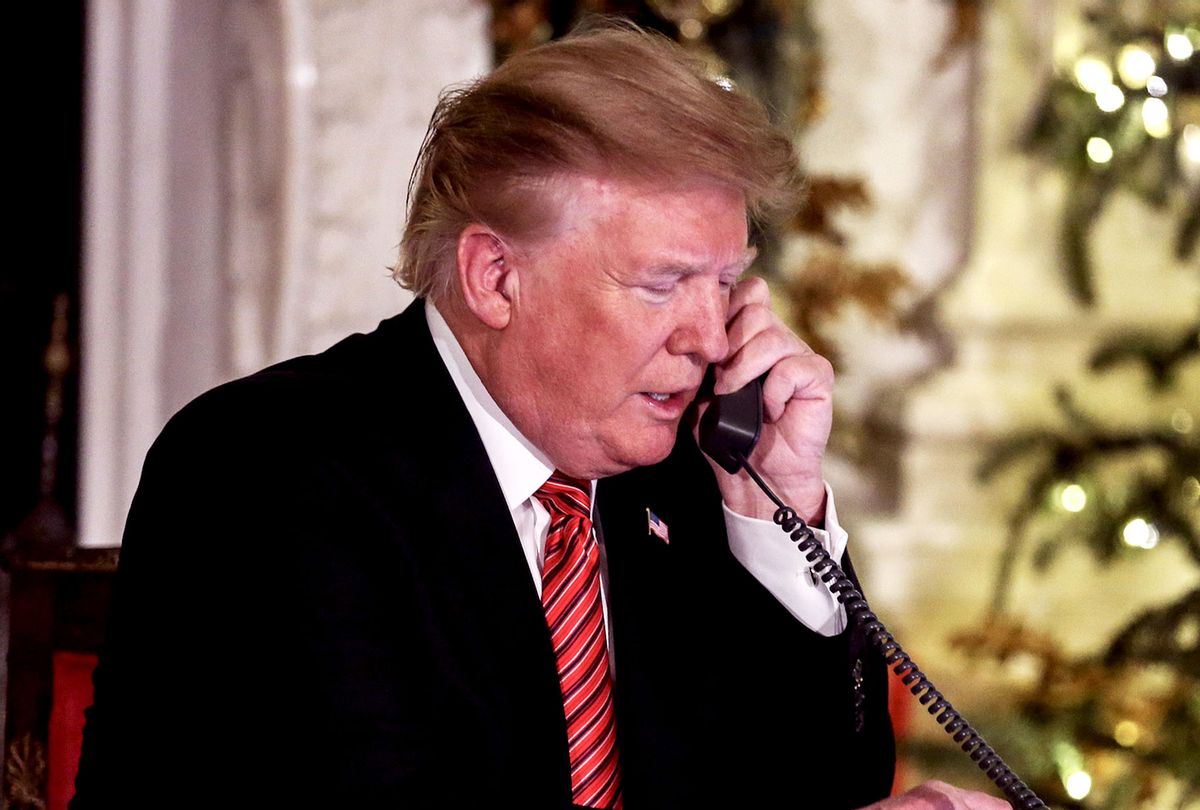Republican candidates, current lawmakers, and those seeking re-election have all adopted one disturbing common theme to get themselves across the campaign threshold: support former President Donald Trump and echo all of his claims of voter fraud in exchange for his endorsement which comes with overwhelming exposure and support from his relatively large base.
With the 2022 midterm elections fast approaching, NBC News' Jonathan Allen and Marc Caputo are now shedding light on Trump's "endorsement operation" and how it continues to give him the ability to exert power over the entire political party.
Republican candidates and lawmakers have certain requirements that must be followed in order for them to acquire the former president's endorsement but the work doesn't stop there.
"The most common theme of Trump's endorsements, particularly at the state level, is that he is backing candidates who have voiced support for his lie that the 2020 election was rigged against him," Allen and Caputo wrote. "Fifty-nine of the 91 have questioned the 2020 election results, according to an NBC News review, including those who voted against certifying President Joe Biden's victory in Congress."
Want a daily wrap-up of all the news and commentary Salon has to offer? Subscribe to our morning newsletter, Crash Course.
On the other side of the spectrum, there is also a system in place for those who choose to challenge the former president's position. For those candidates and lawmakers, whom Trump refers to as "RINOs: Republicans in Name Only," there are countermeasures in place.
"He has also become enamored of the anti-endorsement, ripping into Republican incumbents who challenge him or his lie about the election," they wrote.
Arizona Gov. Doug Ducey (R), Senate Minority Leader Mitch McConnell (R-Ky.) and Sen. Mike Rounds (R-S.D.) are current targets for the former president due to their decision to speak freely in a manner that goes against Trump's wishes.
"Rumors are that Doug Ducey, the weak RINO Governor from Arizona, is being pushed by Old Crow Mitch McConnell to run for the U.S. Senate," he said in a Friday statement, ahead of his weekend rally in that state. "He will never have my endorsement or the support of MAGA Nation!"
RELATED: Trump gives Rep. Paul Gosar his "complete and total endorsement" one day after censure
"I will never endorse this jerk again," Trump said last Sunday after Rounds admitted that the 2020 presidential election was legitimate.
The writers also highlighted another common trend as they noted that "Trump is looking to find races where his endorsement can be tied directly to a hopeful's fate."
"He has stayed away from several competitive GOP Senate primaries where multiple candidates are running as acolytes, including in Missouri, Arizona, and Ohio," Allen and Caputo explained. "In Pennsylvania, Trump endorsed Sean Parnell — only to see Parnell suspend his campaign amid domestic abuse allegations. That served as a warning that he needed a better vetting process."
There is also a process for uncharted territory. In regions where Trump does not have a solid relationship with a current Republican lawmaker or candidate, there is what is described as a more "strategic" approach.
"In cases where Trump doesn't have a long-standing relationship with the candidate — or isn't making the endorsement to thwart an adversary — Republicans familiar with the process describe a more cautious and strategic approach than the one he pursued as president or in the immediate aftermath of his defeat," the wrote.
RELATED: Trump tried to handpick the winner of a Texas House race. He failed miserably
A categorization of Republican candidates also exists. According to Allen and Caputo, there is a "two-tier process" in place. "The candidates Trump is going to endorse come hell or high water, and the lower-tier hopefuls who are getting vetted," they explained.
A Republican operative also weighed in with details about this process. "In the end, he makes these decisions, but he does it after having it run through channels," the operative said. "There's nobody that would have stopped him from endorsing Jody Hice or David Perdue," Georgia candidates who are trying to unseat Secretary of State Brad Raffensberger and Gov. Brian Kemp, both of whom rejected Trump's false claims of foul play in their state in 2020. "No process would have stopped that."
So what does the future hold for the Republican Party? While that remains uncertain, it does not look like Trump's endorsement process will end anytime soon since he's been allowed to exert so much power over the political party.
"There's a lot of other people milling around and keeping a room at Mar-a-Lago and finding a way to spin by the table, but I don't think those people, by and large, have any sway in the process," said the GOP operative. "Not everybody gets a meeting. If they're considering [an endorsement], they meet with everybody who they're considering."




Shares